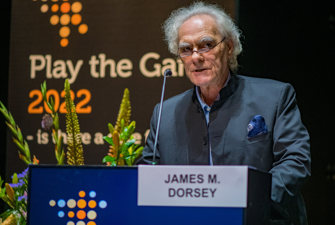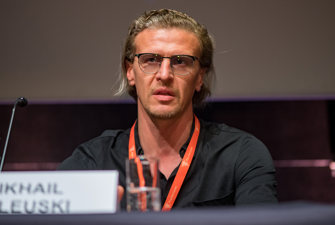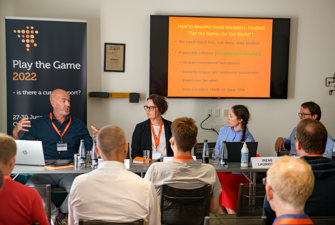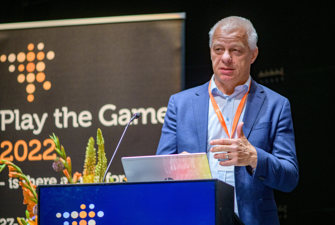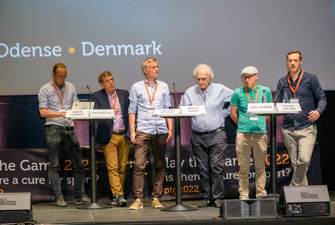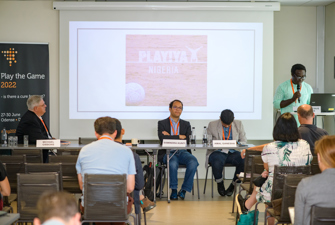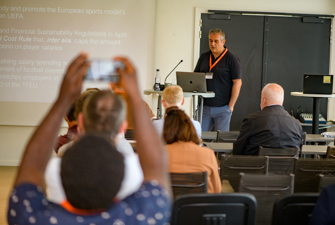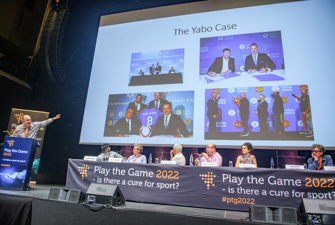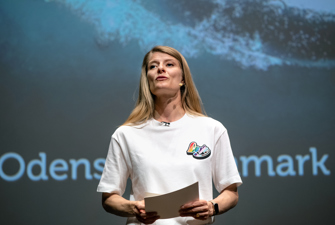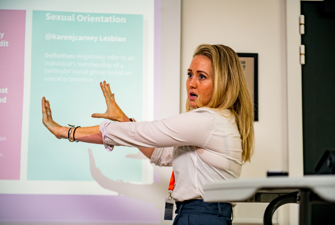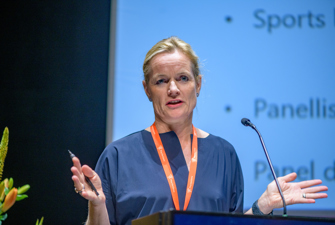Climate expert: Sports’ own carbon footprint is limited
As sports leaders debated how best to reduce emissions, a climate policy expert put the sector’s global impact into perspective.
“It is absolutely essential that the world reduces its emissions,” Roger Pielke, author and climate policy expert at the University of Colorado told Play the Game 2022.
“And it’s no surprise that sport has joined in. That is to be welcomed. But direct emission reduction measures by sports organisations are functionally useless. If sports organisations want to do that, fine. But don’t pretend that it will make a difference.”
“About 0.3 per cent of all global carbon dioxide emissions come from sport, from park runs, my kids playing in the park to the World Cup and the Olympics. The entire historic emissions from the English Premier League amount to about nine seconds of Chinese emissions. In terms of reducing emissions, it doesn’t really matter what sport does,” Pielke explained.
However, Pielke added, sport still has a vital role to play in educating people and promoting policies.
“Not policies of sports organisations, but policies that governments can implement, that actually reduce emissions. The path to net-zero goes through replacing fossil fuel infrastructure. This is what sports organisations should be talking about. Not marginal gains from this event or that event,” Pielke said.
The sportswear industry should do more
David Goldblatt, chairman of the football sustainability organisation Football for Future, stated that the sportswear industry, which includes global companies like Nike and Adidas, should be doing far more to reduce its carbon footprint. “We must insist that they have a plan,” he said.
Goldblatt also called for better verification of the claims by sports organisations about the extent of their emissions.
“We can’t keep marking our own homework. We need an independent authority that can achieve some kind of collective monitoring,” he said.
Ultimately, Goldblatt said, organisations should face the threat of potential sanctions if they fail to comply with emissions reduction targets. Funding streams should be channelled to organisations in developing nations to further emissions-reduction goals, he said.
Rikke Rønholt of Denmark’s National Olympic Committee agreed with the importance of monitoring and obtaining accurate data.
“We need to be more systematic in measuring the impact of our events. If we don’t have the data, then it is really hard to change,” she said.
Drop ice hockey world cup every year
According to Jakob Færch of the Danish Foundation for Culture and Sport a number of measures could be implemented now that would reduce sports' emissions.
“Why should ice hockey stage a world cup every year? It could halve emissions from this tournament by reducing it to every two years,” he said.
When holding global tournaments, he said, sports authorities should end the tradition of constructing new, expensive stadiums in favour of stadiums that already exist.
FIFA’s Head of Sustainability Federico Addiechi said that his organisation was committed to a “carbon neutral world cup” in Qatar, with emissions offset by investments in sustainable projects across the globe.
Accommodation of all fans will be offset, he said, and all visitors will be targeted by information campaigns. Admitting that its gains were only a “drop in the ocean,” he pointed out that FIFA has monitored tournament emissions since 2010.
Watch the session
THURSDAY 30 JUNE 16:30 (CEST) - Playing against the clock: Can sport contain climate change?
